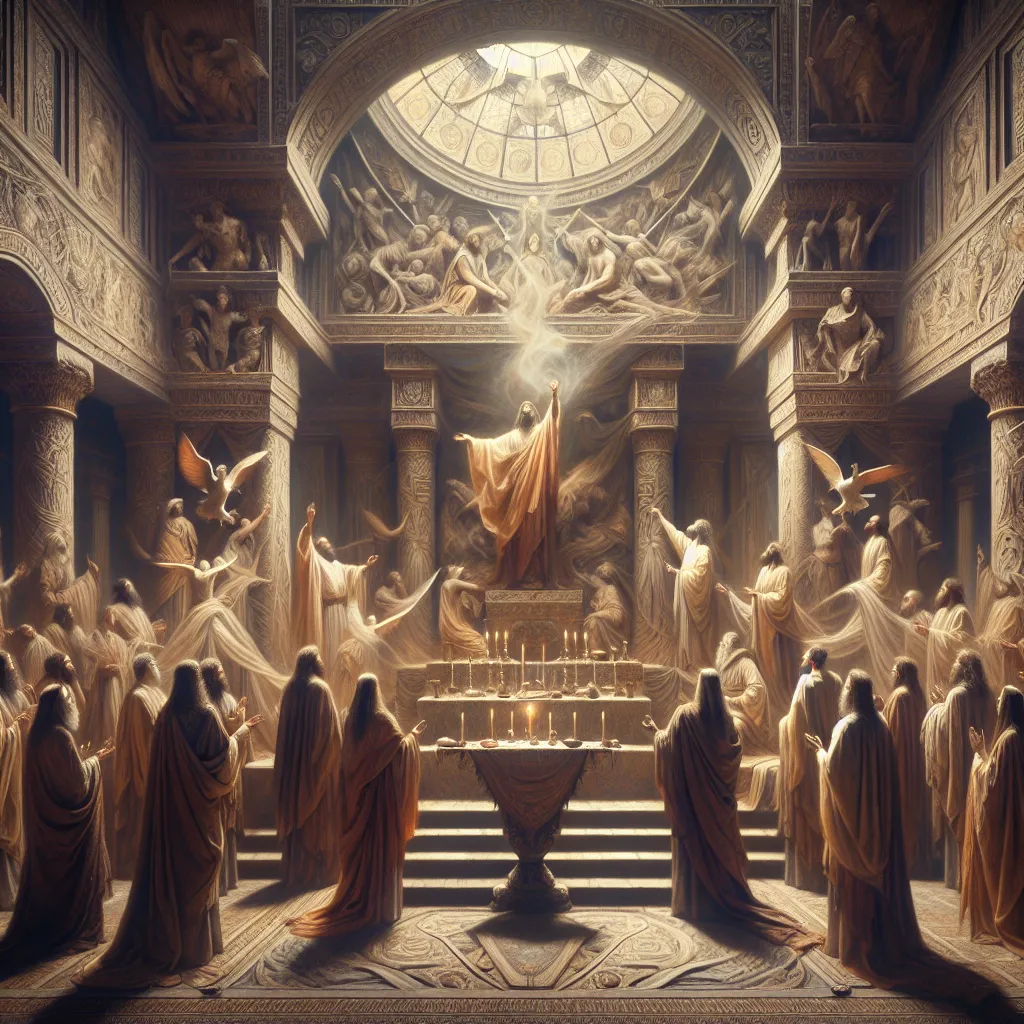
- Published on
- Authors

- Name
- You
Introduction
The Bible, a text revered by millions, is also a treasure trove of mystical wisdom and ritualistic practices that can be harnessed for modern spiritual and magical endeavors. This guide will delve into the magical significance of various Biblical ceremonies and rituals, providing insights on how to incorporate them into contemporary practice.
The Significance of Rituals in the Bible
Rituals in the Bible were not merely religious ceremonies; they were powerful acts designed to invoke divine presence, affirm covenants, and create spiritual transformations. Understanding these rituals can enhance our spiritual practice and connect us deeply with the divine forces.
Key Rituals and Their Modern Adaptations
1. The Sabbath (Shabbat)
Biblical Context
The Sabbath is a day of rest observed from Friday sunset to Saturday sunset. It commemorates God’s rest after creation as described in Genesis.
Magical Significance
The Sabbath is a time for spiritual renewal and connection with the divine energy of rest and creation.
Modern Practice
To incorporate the Sabbath into modern spiritual practice:
- Preparation: Clean your space and mind, symbolizing the purification of spirit.
- Candle Lighting: Light two candles at sunset on Friday, invoking peace and sanctity.
- Recitations: Recite a prayer or affirmation to welcome the divine presence.
- Rest: Dedicate the day to rest, reflection, and spiritual activities.
2. The Anointing Ritual
Biblical Context
Anointing with oil was a significant ritual for consecration, healing, and blessing in the Bible, evident in the anointing of kings and priests.
Magical Significance
Anointing serves as a medium for channeling divine energy, protection, and sanctification.
Modern Practice
Create a personal anointing ritual:
- Choose Your Oil: Select an essential oil like frankincense, myrrh, or olive oil.
- Bless the Oil: Empower the oil through prayer or intention-setting.
- Ritual Use: Anoint your forehead, wrists, or objects to bless them or invoke protection.
3. The Feast of Tabernacles (Sukkot)
Biblical Context
Sukkot is a week-long festival commemorating the Israelites’ wilderness journey, involving the construction of temporary shelters (sukkah).
Magical Significance
Sukkot symbolizes shelter, divine protection, and gratitude for harvest and sustenance.
Modern Practice
To adapt Sukkot:
- Build a Shelter: Create a small sacred space or altar in your home or garden.
- Decorate: Adorn it with natural elements, symbolizing abundance and gratitude.
- Daily Observance: Spend time in your sukkah, meditating or offering thanks.
Ritual Significance Table
| Ritual | Biblical Source | Spiritual Purpose | Magical Adaptation Examples |
|---|---|---|---|
| Sabbath | Genesis 2:2-3 | Rest, Renewal, Divine Connection | Clean space, light candles, recite prayers |
| Anointing | Psalm 23:5, Exodus 30:22-33 | Blessing, Healing, Protection | Bless oil, anoint self/objects |
| Feast of Tabernacles | Leviticus 23:33-43 | Gratitude, Divine Shelter, Harvest | Build a sukkah, decorate with natural items |
Conclusion
The rituals and ceremonies embedded within the Bible are profound expressions of spiritual practice that transcend time. By understanding their magical significance, we can incorporate these ancient practices into our modern lives, enriching our spiritual journey and deepening our connection with the sacred.
Embrace these timeless rituals, and let them guide you towards a harmonious and divinely inspired life.
